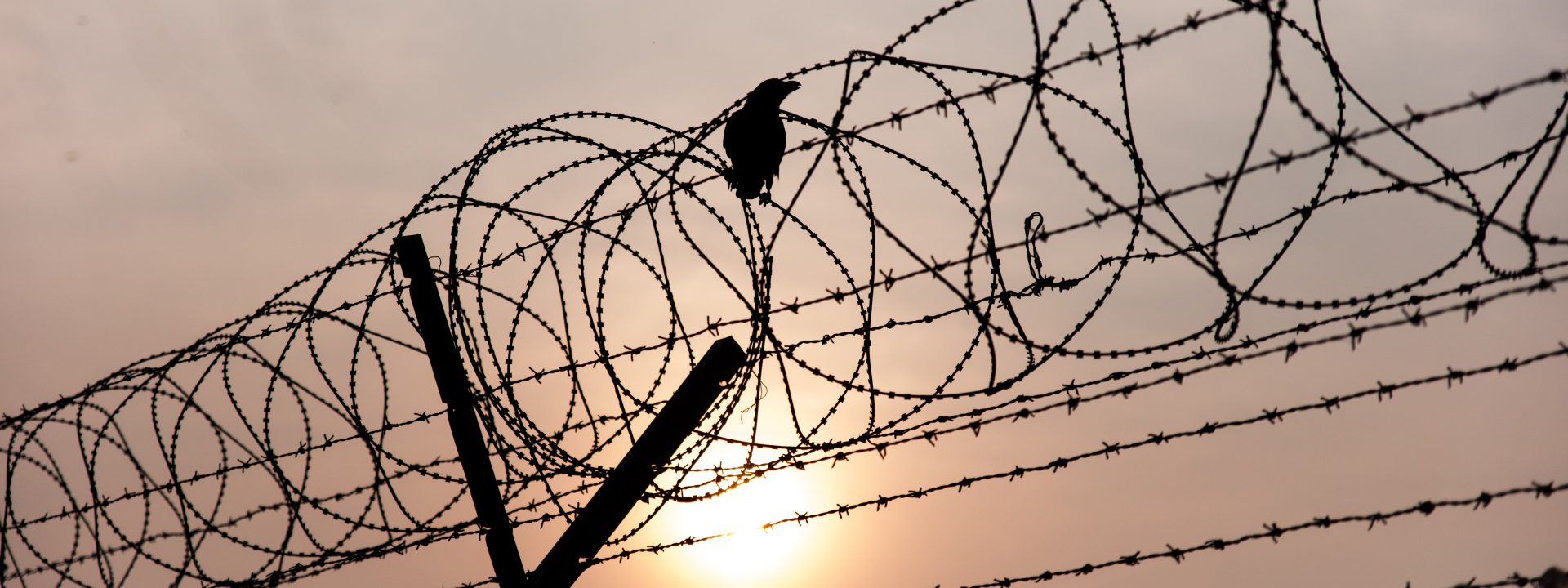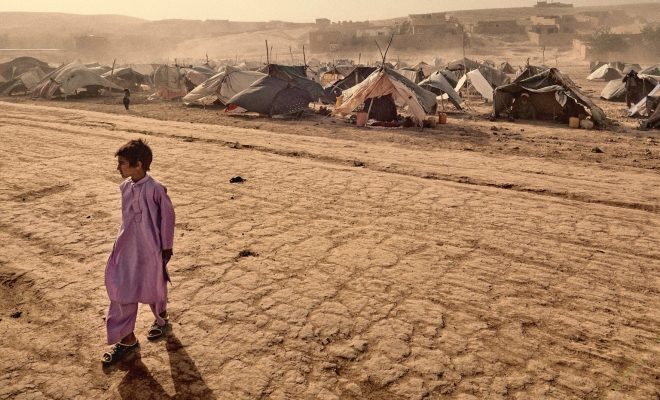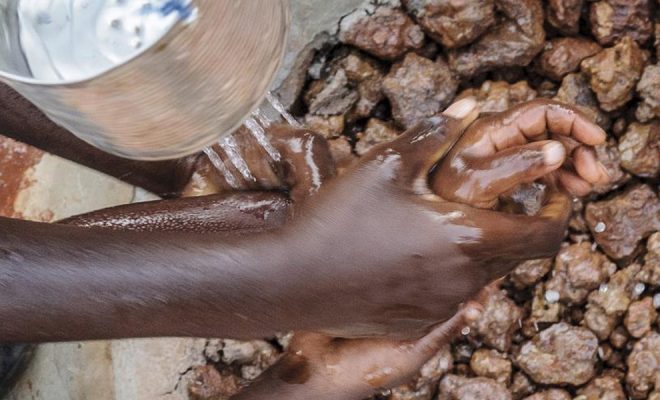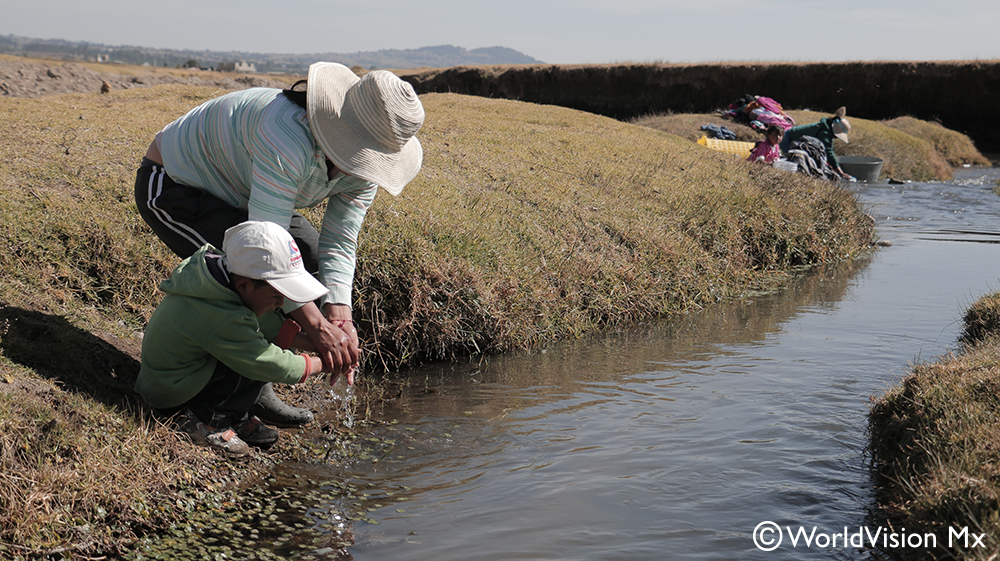
A country of migrants for many decades, Mexico has recently become a host country © World Vision
A country of migrants for many decades, Mexico has recently become a host country. In October 2018, one thousand Hondurans entered the country with the aim of reaching the United States or seeking asylum in Mexico. They were followed by successive waves of Guatemalans and Salvadorans in a never ending flow that took Donald Trump’s administration by surprise, who at the time was finalizing his plans to build a border wall with Mexico to avoid illegal entries.
The U.S. president flatly refused to welcome these migrants, while the Mexican government, overwhelmed by the sudden flow of people who arrived in precarious conditions, asked the UN for support in dealing with them. The terrible image of a Salvadoran migrant who drowned along with his daughter when he tried to swim across the Rio Bravo, made the world aware of the human drama that was taking place in the southern border of the United States. Since then, caravans of Central Americans have continued crossing the country from south to north.
Fleeing from poverty and violence
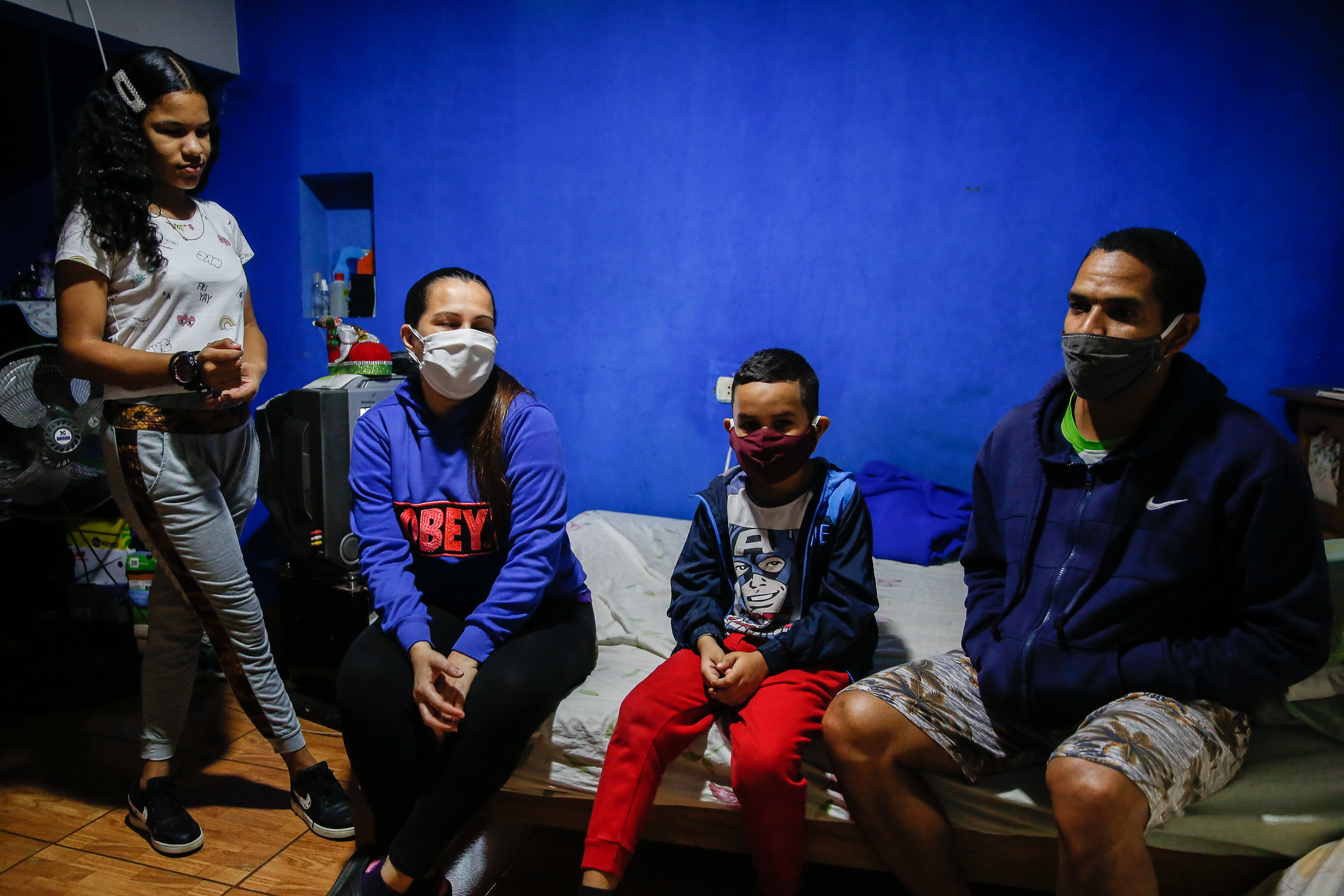
The health contingency caused by Covid-19 notably increases the vulnerability of those who are homeless and see their future with uncertainty © U Civil Protection and Humanitarian
According to a study by the Inter-American Development Bank (IADB), 9% of the population of El Salvador, Guatemala and Honduras, the so called Northern Triangle, lived in the United States in December 2019; a total of three million people, 60 % of them illegally. According to the IABD, 74 % of the migrants fled from poverty, 43 % were seeking family reunification with former migrants and 41 % fled from violence in their countries. The latter is the cause of “flee or die”, repeated by many of those who cross the borders: they come from one of the regions with the highest criminality rate in the whole world. According to the World Bank, there were 15,889 homicides in the Northern Triangle in 2016, distributed almost equally among the three countries, a figure well above the world average of 5.3 homicides per 100,000 inhabitants. Organized crime groups are the authors of robberies, drug trafficking and also trafficking of migrants.
In view of the human avalanche, the rejection of the U.S. government increased. The pressure was transferred to the Mexican government of Andrés Manuel López Obrador by conditioning the signing of the North American Free Trade Agreement (NAFTA) to the stopping of the transit of migrants. After causing a severe diplomatic crisis, Mexico gave in and closed the deal to avoid an increase in customs duties that would be devastating for its economy. This marked a turning point in the migration policy of the Mexican government, which shifted from an open door policy for Central American migrants to massive deportations and the militarization of its southern border with Guatemala with operations by the newly created National Guard to prevent the entry of the caravans. For all these reasons, the exodus has returned to the risks of secrecy, to mafias that charge each family for transportation and to pockets of corruption among officials.
The United States has been applying the MPP (Migrant Protection Protocols) since January 2019, also known as “Remain in Mexico”, a program based on returning all people who arrive in the United States to Mexico, regardless of how they entered the country and of their interest in seeking asylum, and waiting there for the resolution of their case by an immigration judge. Over the last few years, the United States has considered Mexico as a filter of migrants and its strategy continues to be the same.
The Secretariat for Home Affairs estimates that over 124,000 migrants have been deported from Mexico to their countries of origin; and since the signing of the T-MEC until last May, nearly 70,000 people were sent from the United States to Mexico to await a response to their asylum claims.
Trapped by the pandemic
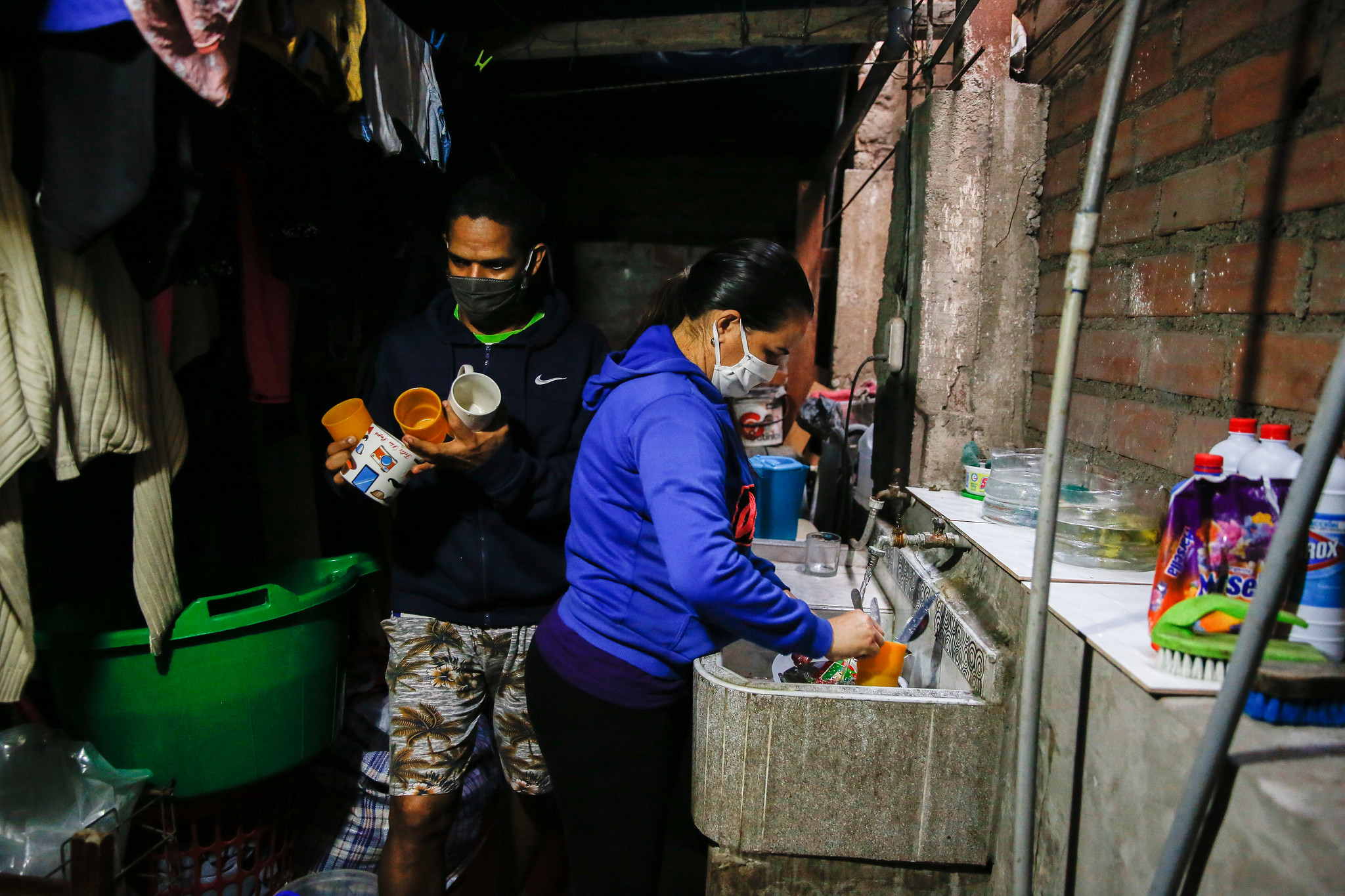
The outbreak of the Covid-19 pandemic and its virulence in the United States and Mexico significantly slowed down the flow of migrants, but increased the vulnerability of those who were already living in overcrowded and unhealthy conditions.© EU Civil Protection and Humanitarian
The drama of the migrants from the Northern Triangle does not seem to stop. The United Nations High Commissioner for Refugees (UNHCR) estimates there are around 470,000 refugees and asylum seekers from that area all around the world; more than 97,000 are in Mexico, while only in Honduras and El Salvador there are more than 318,000 internally displaced people.
In May 2020, the outbreak of the Covid-19 pandemic and its virulence in the United States and Mexico significantly slowed down the flow of migrants, but increased the vulnerability of those who were already living in overcrowded and unhealthy conditions, with difficulties in obtaining water and sanitation and lacking the most basic hygiene practices to stop the spread of coronavirus. In addition to the exposure to contagion, most of those who had found small jobs to support themselves have lost them due to the crisis.
The We Are Water Foundation has started a project with World Vision in the border area of Tijuana, in the Mexican state of Baja California, to fight the spread of coronavirus, increasing the access to handwashing facilities and the availability of water and soap in migrant care centers. The project, which intends to fully develop the WASH (Water, Sanitation and Hygiene) strategy, will place special emphasis on workshops for adequate training on the use, management and maintenance of handwashing stations. Around 530 migrants, with over 180 children under the age of 15 will benefit from the project. Most of them are currently awaiting the approval of their political asylum claim, so that they can legally enter the United States; other beneficiaries are unemployed local people that require assistance to be able to feed themselves, so they make use of the shelter’s services.
The health contingency caused by Covid-19 notably increases the vulnerability of those who are homeless and see their future with uncertainty. The humanitarian crisis of those forced to migrate to flee from poverty and violence is widespread throughout the world. On the last World Refugee Day, UNHCR warned that for the third consecutive year, the data on displacement around the world show record figures. Every 3 seconds a person is forced to leave his or her home, and 70.8 million people had to flee in 2018. May the pandemic at least make us see the human tragedy this entails and help us put a stop to it.


